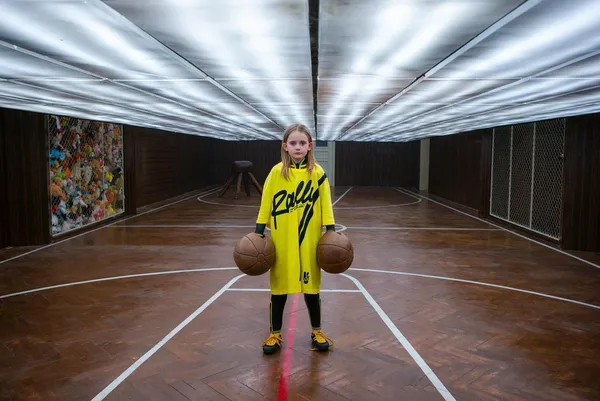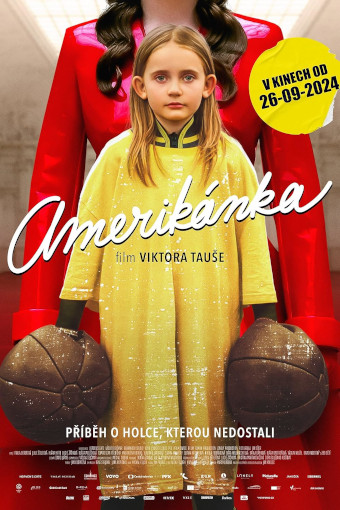Eye For Film >> Movies >> Girl America (2024) Film Review
Girl America
Reviewed by: Jennie Kermode

What does it mean to be American? Is it, necessarily, about living in a certain place, or could it be about being a certain type of person? The US has always worked hard to export its particular notions of freedom and fun, and never more so than during the Cold War, when the effect of efforts to restrict them in Communist countries like Czechoslovakia was to ensure, instead, that they never met with a convincing critique. As a result, America came to seem like a paradise where anything was possible. Americanness became a way of being, a means of resistance, brash and colourful, with no need to be justified.
Viktor Taus’ Amerikánka (more naturally translated as ‘American girl’) is a follow-up to a series of TV movies in which he explored aspects of girls’ and young women’s lives during the Soviet period. Though theoretically focused on one girl over the course of a number of years, it addresses the experiences of several, their identities blurring into one another both laterally and intergenerationally. It is dedicated to the many, many more who survived in children’s homes and similar institutions during that time. If that sounds unrelentingly grim, however, you’d be mistaken. Exploitation, abuse and neglect are only a part of the story. There is also a fearless pursuit of joy that will remind some viewers of Helena Zengel’s extraordinary performance in 2019’s System Crasher.

Emma (played as a child by Klára Kitto) remembers her mother in full colour, wearing a succession of fabulous outfits in a brightly painted apartment full of draped fabric and pretty lights and assorted alcoholic drinks. It’s a sensual space carved out of the grim surrounding world by sheer force of will, but at a cost. One can almost smell that special sweetness that haunts the breath of alcoholics. There were happy times, playing together with candy-coloured make-up, warm in that exuberant glow; but also tears.
And then Emma, at just nine years of age, trying to care for her little brother Johnny all alone, with no food to give him. building him a fortress of piled-up furniture, telling him that some Americans have enormous hands and you have to be really slick to fight them. Later still, yelling frantically as she’s dragged away, as someone says that that if a neighbour hadn’t reported the situation and the police hadn’t broken the door down, she and Johnny would have died in that flat.
She has an older brother in juvie; we see flashbacks of her mother beating him, expressing her disappointment in him; and woven together with these is a potent secret. Their father is in America. Emma determines to join him, by hook or by crook – and the film has plenty of both. But first comes the system, with Julie Šoucová taking over the character in her teenage years, as children’s home regimentation and bizarre foster parents try to force her into an approved identity before she can figure out her own. Here there are split screens and elaborate sets, and we are told that Americans identify one another by smell. We meet the older brother as he tries to offer some form of support despite his own straitened circumstances, and she pins her hopes on a wild plan to obtain enough money to flee to the promised land.
The final third of the film picks up a few years later, after the time spent in sex work that is commonplace for girls who have been in care all over the world. Pavla Beretová’s version of Emma has lost that ferocity that was easy to fall in love with, but gained a more resilient kind of strength; she’s inherited her mother’s glamour and galvanised steel core. She needs it to hold her own in the world as a single mother, now facing off directly against the strongman figure whose shadow has hung over events from the start – the spirit of an unforgiving patriarchy whose looming presence has been variously misinterpreted through the lens of childish optimism. As the end of communism ultimately brings America to her, with too much of everything, cracks begin to appear in her idyllic vision, but, it is suggested, it’s learning to own her disappointment, instead of perpetually having it wielded against her, that might make a more meaningful freedom possible.
Vivid and magical and fuelled by urgent pain, Girl America is a mesmerising cinematic confection which dazzled audiences at Fantaspoa 2025 and deserves to be seen much more widely.
Reviewed on: 21 May 2025
















